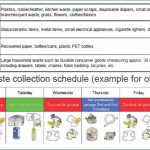 Green marketing owes its existence to corporate environmental responsibility and the urgency about combating the issue of climate change. A business practice that takes into consideration consumer concerns about driving preservation and conservation of the natural environment, green marketing highlights the superior environmental protection features of a company’s products and services. In other words, it is the marketing of products that are presumed to be environmentally safe. While some companies are sincerely putting green marketing into practice, others are “greenwashing” their labels to woo the ever-increasing number of eco-conscious customers. “Greenwashing”, to put it simply, is the act of misleading consumers about the environmental practices of a company or the environmental benefits of a product or service.
Green marketing owes its existence to corporate environmental responsibility and the urgency about combating the issue of climate change. A business practice that takes into consideration consumer concerns about driving preservation and conservation of the natural environment, green marketing highlights the superior environmental protection features of a company’s products and services. In other words, it is the marketing of products that are presumed to be environmentally safe. While some companies are sincerely putting green marketing into practice, others are “greenwashing” their labels to woo the ever-increasing number of eco-conscious customers. “Greenwashing”, to put it simply, is the act of misleading consumers about the environmental practices of a company or the environmental benefits of a product or service.
Greenwashing claims that it champions the cause of environmentalism and sustainability, but in reality, it fudges or misrepresents facts. It underplays harm to the environment through incomplete or misleading statistics. Bottled water companies choke the ocean with plastic bottles, but they try to relieve consumers of worries by stamping their bottles as recyclable material. The recycling that they refer to never happens, but consumers feel that they are helping the environment by buying the water
Types of Greenwashing
One of the types of greenwashing that can be identified is the hidden trade-off. It is a claim that suggests that a product is ‘green’ based on just a few characteristics with no attention to other significant environmental issues. For example, shampoo is not environmentally preferable just because it comes from organic material as shown on the bottle. The chemical ingredients and contents that are not disclosed may be harmful for the consumer and environment.
A claim about a product that cannot be supported by evidence is another type of greenwashing. For example, the diapers and napkins companies that claim percentages of recycled content without providing evidence.
Greenwashing also commits the sin of vagueness. It is a claim that is too broad or not legally defined. ‘All-natural’ is an example. Arsenic, uranium, mercury and formaldehyde are all naturally occurring and poisonous. So, ‘all natural’ is not necessarily ‘green’.
Resorting to the use of fake labels is also a type of greenwashing. This type of greenwashing takes place when a product, through either words or images, gives the impression of third-party endorsement where no such endorsement actually exists.
Irrelevance is another type of greenwashing. It means that an environmental claim may be truthful but is irrelevant or unhelpful. For example, ‘CFC-free’. It is a frequent claim despite the fact that Chlorofluorocarbons (CFCs) are banned by law.
Greenwashing can also involve the ‘lesser of two evils’. It is a claim that may be true within the product category, but that risks distracting the consumer from the greater environmental impacts of the category as a whole. For example, organic cigarettes and fuel-efficient sport-utility vehicles.
Fibbing has also been quite prevalent in recent times. It is an environmental claim that is simply false. Examples of fibbing are products falsely claiming to be energy star certified or registered.
Greenwashing: Examples
Consider a couple of examples of greenwashing, where no actual steps were taken to follow what was preached. Rhude, a French luxury fashion brand, choreographed a show about climate change and the pressing need to “open our hearts and our minds” before it is too late. However, soon after the show, one of the designers admitted to the press that “there was nothing sustainable about his collection.”
Last year, the state of Massachusetts accused Exxon Mobil Corp (XOM. N) in lawsuit of climate change deceit. Massachusetts sued Exxon, accusing the oil giant of misleading investors and consumers for decades about the role fossil fuels play in climate change.
According to the Advertising Standards Authority (ASA), marketing claims must be absolutely clear, truthful, accurate and not misleading. Companies or marketers must base environmental claims on the full life cycle of the advertised product, unless the marketing communication states otherwise, and must make clear the limits of the life cycle. They need to ensure that claims that are based on only part of the advertised product’s life cycle do not mislead consumers about the product’s total environmental impact.
The Need of the Hour: Stricter Laws and Regulations
Although many countries have framed laws to stop greenwashing and made progress in thwarting it, new stricter laws and regulations to prevent greenwashing are surely required. Greenwashing needs to be monitored, and the companies should be punished for misleading environmental claims. The use of environmentally friendly images on products which have no environmental impacts should be prohibited. Companies should be forced to stay away from using green color in the logos of their products. Green audit needs to be developed to evaluate the nature-conservation performance of the companies. Advertisement standards and corporate codes of conduct require reform. It is time the majority of the governmental bodies, NGOs and environmentalists launched sustained anti-greenwash campaigns.
The Two Sides Anti-Greenwash Campaign
By running its anti-greenwash campaign, Two Sides North America Inc. is doing the paper industry a great service. Since early 2012, it has engaged with over 195 companies to change or remove negative environmental claims used to promote electronic services over paper-based communications. It contacts companies and provides them with the real facts about responsible paper production in North America including the fact:
- That electronic communication also has environmental impacts
- That in North America, many more trees are grown than harvested
- That many consumers value paper-based communication
Glowing testimonials have come from companies that have benefited from their relationships with Two Sides. Says Sprint’s Alan Anglyn, Director, IT Care & Billing Services Business Management, “One of the benefits of our relationship with Two Sides has been the opportunity to reflect on how we communicate our efforts. This caused us to review Sprint’s messaging about electronic media across multiple touch points.”
According to Andrew Woodroffe, Senior Project Manager & Sustainability Leader, HSBC Group, “Our two organizations are very close on our approach to paper and its role within the Finance Industry. We also agree that the (e-billing) statements in place were too simplistic about this positive impact and would benefit with being re-worded to be more specific. The HSBC global sustainability team has agreed to draft some new wording which we will share with Two Sides for review prior to issue as guidelines to our marketing and communications teams.”
It is worth noting that 2019 was the busiest year to date for Two Sides’ anti-greenwash campaign. During this year, 388 organizations across the world were found to be using unsubstantiated claims about print and paper’s impact on the environment. These organizations were identified by Two Sides throughout Europe, North and South America, South Africa, Australia and New Zealand. Two Sides gladly reported that 131 of those organizations had removed or changed their messaging.
During 2019, in North America, Two Sides worked with several major organizations to achieve significant
changes in messaging, including Cigna, ComEd, Comcast, JP Morgan Asset Management, JP Morgan
Chase, Principal, Selective Insurance, Starbucks, to name a few. It should be noted that Starbucks worked with Two Sides to remove claims of “trees saved” on all bags and napkins across all 7,200 outlets in the U.S. and Canada.
It is alarming to note that in their efforts to cut costs, many banks, telecom providers, utility companies and even governmental organizations have been encouraging their customers to switch to digital services by using unfounded environmental claims such as “Go Green – Go Paperless” and “Choose e-billing and help save a tree.” Phil Riebel, President of Two Sides North America, says, “Not only are these claims misleading and in breach of advertising rules, they also ignore the growing and significant environmental impact of today’s massive electronic infrastructure. Far from ‘saving trees,’ a healthy market for forest products such as paper encourages the long-term sustainable management and growth of forests. Many of the organizations we engage with are always surprised to learn that net forest growth in the U.S. is equivalent to over 1,500 NFL football fields per day.”
Jonathan Tame from the Two Sides global team concludes, “Tackling greenwash is an ongoing challenge that requires significant resource to research, monitor and engage many organizations. Because of the huge reach of some of these corporations, these unsubstantiated claims about print and paper have a negative effect on consumer perceptions about paper. For this reason, the anti-greenwash campaign will continue to be a priority of Two Sides. We are grateful for the cooperation of the hundreds of organizations we have worked with in recent years. We are also thankful for the many industry stakeholders and members of the public who send Two Sides examples of greenwash.”
Two Sides continues to actively engage organisations found to be using unsubstantiated environmental claims about the use of paper. So far, around 70 percent of the companies engaged by Two Sides have changed or removed misleading messages.
“Environmentally-conscious consumers rely on corporate messages to inform their purchasing choices. Yet, it is not uncommon for organizations to make misleading environmental claims that promote switching from paper to electronic services as better for the environment,” says Phil Riebel, President, Two Sides North America Inc.

Paper Mart: Could you tell us a little bit about the good work that Starbucks and Two Sides recently did together?
Phil Riebel: Two Sides operates an anti-greenwashing campaign globally where we work with organizations who are using “anti-paper” marketing claims to promote lower-cost digital services over paper-based communications. The majority of the green claims used are not substantiated with facts and do not consider the growing and significant environmental impact of our digital infrastructure. Finally, they also do not comply with environmental marketing rules and guidelines published in many countries. We approach the companies and request that they change or remove the claims, and use factual messages instead.
“Greenwashing claims that it champions the cause of environmentalism and sustainability, but in reality, it fudges or misrepresents facts.”
The work with Starbucks has been underway for over 4 years. The company was great to collaborate with and they immediately understood and agreed with our position. First, all the printed messages were changed on paper bags and napkins in the U.S., and then in 2019, Canada followed. All claims of “saving trees” were removed from all bags and napkins at all outlets in the US and Canada – in total 7,200 Starbucks outlets.
PM: Starbucks recently worked with Two Sides to remove claims of “trees saved” on all bags and napkins across all 7,200 outlets in the U.S. and Canada. What are the implications of this removal?
PR: The implications are important for the paper and printing industries because fewer people see negative claims about print and paper products. In fact, the Starbucks project alone influences at least 1.3 billion impression per year, just for napkins. This assumes an average of 500 customers per day for each Starbucks outlet, and 1 napkin used per customer. With revenues of $26 billion US per year, companies like Starbucks can reach a lot of consumers – so getting the message changed is critical.
“Two Sides North America Inc. has engaged with over 195 companies to change or remove negative environmental claims used to promote electronic services over paper-based communications.”
PM: In one of your articles you wrote “Starbucks was a great company to work with and we certainly hope more will follow their suit.” Are you currently working with some other companies along similar lines?
PR: Yes, since the launch of our campaign in 2012 we have worked with over 195 companies, just in North America. They include many of the Fortune 500 banks, telecoms, utilities, insurance companies – some of the world’s largest corporations. Our success rate in getting companies to change or removed claims is currently at 65 percent.
PM: What are the misleading aspects of most paperless marketing slogans?
PR: There are several:
- They do not comply with environmental marketing guidelines. For example, in the U.S., this would be the US Federal Trade Commission Green Guides which requires claims to be substantiated with solid facts and specific.
- They do not consider the environmental impact of switching from paper to digital.
- They do not consider the unique sustainable features of paper, such as coming from renewable resources and highly recyclable.
- They assume paper is a cause of deforestation as opposed to coming from sustainable managed forests.
PM: What is greenwashing? Could you give us examples of greenwashing? Why do some businesses go for it? What are the signs that we should look out for to avoid greenwashing brands?
PR: Greenwashing is defined in the Oxford Dictionary as, “to make people believe that your company is doing more to protect the environment than it really is.” Environmentally-conscious consumers rely on corporate messages to inform their purchasing choices. Yet, it is not uncommon for organizations to make misleading environmental claims that promote switching from paper to electronic services as better for the environment, i.e. ‘go paperless – go green’ and ‘save trees.’
The main driver is to lower cost by switching customers from paper and print to online billing and services.
The main signs are unsubstantiated green claims. Companies should just focus on factual messaging to promote online services. Furthermore, studies have shown that green claims do not sway consumers to go paperless – so the claims are actually ineffective from a marketing point of view.
PM: How do you define deforestation? What are the causes of deforestation? Is paper production, especially tissue paper production, responsible for deforestation? What does “going green” really mean?
PR: Deforestation is the conversion of forest to another land use. It EXCLUDES areas where trees have been removed as a result of harvesting or logging, and where the forest is expected to regenerate naturally or with the aid of silviculture (United Nations FAO, 2001). In other words, it is the long-term or permanent loss of forest cover. This includes areas converted to agriculture, pasture, water reservoirs and urban areas.
“Tackling greenwash is an ongoing challenge that requires significant resource to research, monitor and engage many organizations.”
Globally, the #1 cause of deforestation is agriculture. In North America, the paper industry is not a cause of deforestation due to sustainable forest management, government regulations and forest certification programs.
PM: What is the best advice you can give the internal marketing teams of businesses in India regarding greenwashing?
PR: First of all – respect environmental guidelines for environmental marketing. If you plan to compare products or services based on environmental criteria, make sure you have all the facts and that you have analyzed environmental impacts over the life cycle of each product or service. Don’t assume digital has no impacts – this is false – in fact, it has many impacts and they are growing every day.
Stick to factual and substantiated messaging. There is no need for “go green”, “save trees”, etc. – they mislead consumers and show that you have not done your homework and perhaps do not understand sustainability.



